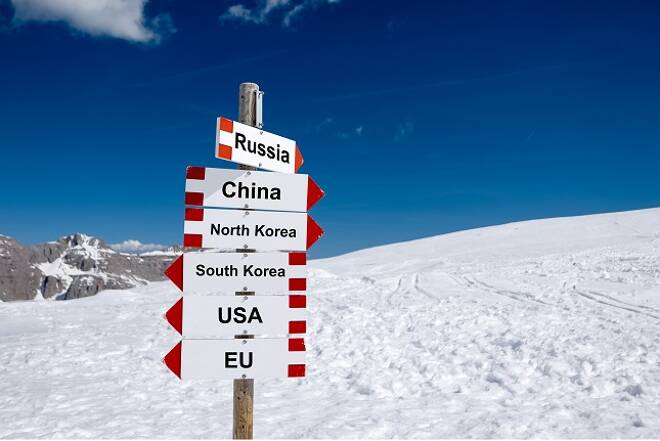Advertisement
Advertisement
How Are US Sanctions Affecting Global Markets?
Updated: Mar 4, 2019, 13:22 GMT+00:00
The US has been involved in numerous heated exchanges in recent months, and relations with Russia and Iran are now frosty at best. The US president, Donald Trump, has often threatened to impose further sanctions on the two countries, something which now seems increasingly likely to happen.
With tensions continually rising over Syria, it looks as though there may well be further developments between all countries involved in the coming months. Any US sanctions could well have significant consequences for global markets and investors. Here are some of the effects they may have.
Iranian Oil
Iran is one of the main oil producers in the world, and the Iranian oil industry forms a significant part of its overall economy. Oil prices have already been rising as a result of the threat of US sanctions against Iran, with many investors clearly banking on more sanctions being imposed.
If oil prices do continue to rise, then OPEC pacts may well ease off as oil-producing countries take advantage of the higher prices. This, however, could serve to worsen the current oversupply which has been keeping prices down for the last few years.
Russia
Some of the US’ most heated exchanges have been with Russia, who it criticises for supporting the Syrian government. Sanctions imposed earlier this month against Russia have already instigated volatility in Russian markets, and this could continue for some time if political relations continue to be turbulent.
The rouble continues to decline versus the US dollar, suggesting that further sanctions could have an enduring effect on the Russian economy. Oil is also one of Russia’s major exports, so sanctions could also harm the Russian oil industry in the same way they may harm Iran’s.
Investor Sentiment
Those using online brokers like Oanda to invest in their chosen markets will no doubt be apprehensive given the current situation, as volatility pervades the economies involved. It is difficult to accurately predict how far the US will go with its sanctions, but they certainly seem to be having the desired effect.
Some investors may well try to take advantage of the current volatility by stocking up on assets which may shoot up in value as a result of sanctions (e.g. oil, aluminum, gold). Investor behavior will likely be based on whether political solutions to the current global problems can be found, or whether relations will continue to worsen between the US, Iran, and Russia.
Nuclear Deal
The Nuclear Deal between major world powers and Iran, which has given the latter sanctions relief in return for it curbing the nuclear program, is now under threat. If relations continue to worsen, it is fair to say that any renewal of this deal will be in serious danger.
This could cause further investment caution with regards to Iranian assets, depending on which companies would be targeted by sanctions. It could also serve to damage the value of Iranian stocks if investors are significantly dissuaded from investing in them.
Ultimately, US sanctions are having a profound effect on global markets, and this could continue for the foreseeable future. The threat of further sanctions, as well as the deterioration of relations between the US and Russia/Iran is likely to be influencing investor behaviour, and it could be the case that divides continue to widen.
Despite this, some Russian oil companies have actually been performing fairly strongly as sanctions have raised the price of oil. This may raise the question of how effective sanctions are in achieving their purpose, and whether dialogue may be a better solution to the current conflicts.
This article was written by Vanessa Bastos
About the Author
Advertisement
